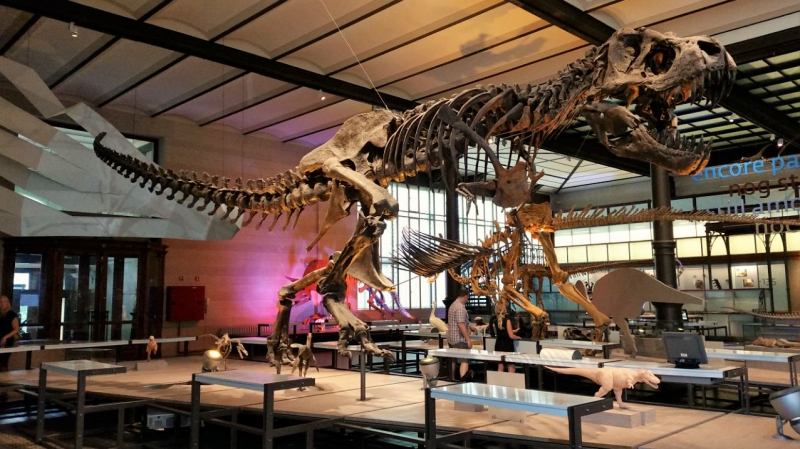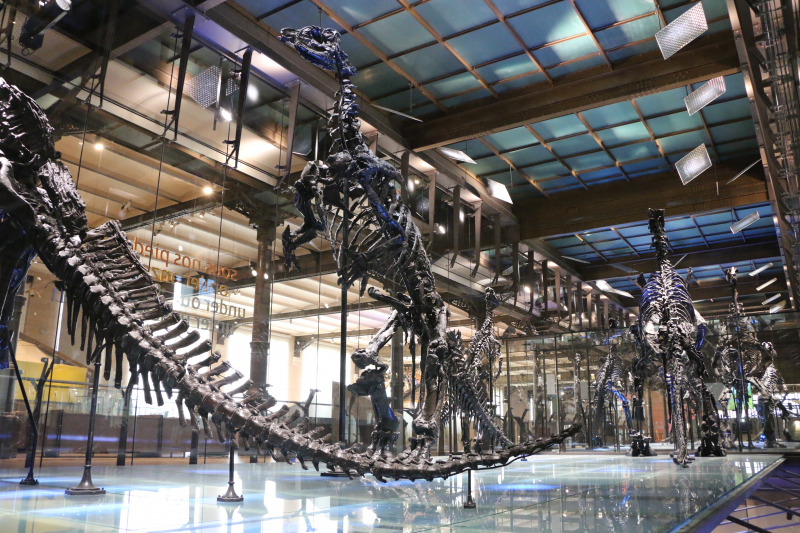Royal Belgian Institute of Natural Sciences
The Royal Belgian Institute of Natural Sciences is a museum dedicated to natural history in Brussels, Belgium. The Royal Belgian Institute of Natural Sciences houses the museum. The most notable artifacts in the collection are 30 fossilized Iguanodon skeletons unearthed in Bernissart, Belgium, in 1878. The museum's dinosaur hall is the world's largest museum hall dedicated entirely to dinosaurs. The Ishango bone, found in the Belgian Congo by Jean de Heinzelin de Braucourt in 1960, is another well-known fragment. A research section and a public exhibit department are also located within the museum.
The Royal Belgian Institute of Natural Sciences was established on March 31, 1846, as a descendent of the Musée de Bruxelles, which had been established in 1802. It was based on Prince Charles Alexander of Lorraine's collection, which dates from the 18th century. In 1846, Belgian scientist and politician Bernard du Bus de Gisignies became the museum's first director, donating 2,474 birds from his personal collection to the institution.
Location: Rue Vautier 29, Brussels, Brussels Region 1000
Website: naturalsciences.be










